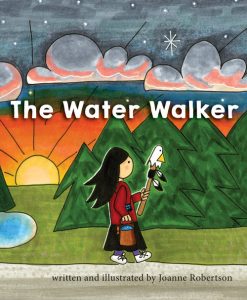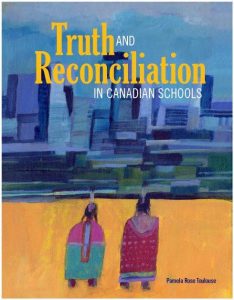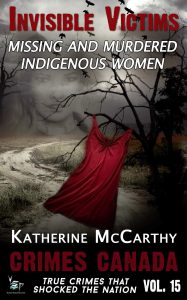Post and Display curated by Subhanya Sivajothy
In honour of Indigenous Education Month in November, this month’s display is on learning and developing critical awareness on Indigenous Issues.
This Display is especially curated to help settlers and non-Indigenous people learn about issues affecting First Nations, Métis and Inuit peoples. As a settler on Turtle Island (also known as North America), it is our duty to have both critical awareness and self-awareness of the responsibilities that we have to the Land and to the stewards of these Lands. They are written by a variety of Indigenous thinkers and writers, which will hopefully inspire you to start conversations, create relationships and undertake actions to become supportive allies.
Many of these issues shared amongst the books intersect in a variety of ways, highlighting the centuries of discrimination, and violence perpetrated by government-approved practices and policies. For example, in Invisible Victims, McCarthy talks about the racist violence resulting in the Missing and Murdered Indigenous Women, Girls and Two Spirit crisis; however, she notes that this stems from the long-term effects of Residential Schools, which is extensively covered in other books in the display such as Stolen Lives: the Indigenous Peoples of Canada and the Indian Residential Schools.
One of the first things that is recommended reading is the Truth and Reconciliation Commission of Canada’s Final 2015 Report that is available through the Library and as audiobooks.
We have also highlighted a few items from the Display below.
 Indigenous Writes by Chelsea Vowel
Indigenous Writes by Chelsea Vowel
Indigenous Writes is a must-read for students, teachers, professionals—anyone who needs a nuanced, yet accessible starter-read on Indigenous issues in Canada. The book covers topics such as terminology, treaties, state violence, treaties, state violence, myth-busting etc. This book is written by Chelsea Vowel who is a prominent Metis scholar, writer, and educator. She also cohosts an Indigenous feminist sci-fi podcast Métis in Space with Molly Swain, and blogs at apihtawikosisan.com.
The Water Walker by Joanne Robertson
The Water Walker, tells the story of Nokomis Josephine Mandamin, an Ojibwe grandmother who walks around all the Great Lakes to protect Nibi (water) for future generations. This story is chronicling the real story of Nokomis Josephine Mandamin—an elder and water activist—who has been involved with the Mother Earth Water Walkers since 2003. Together they have organized sacred water walks to both celebrate Nibi and motivate people’s commitment to protecting the water. Joanne Robertson herself is also an Indigenous activist and is the founder of the Empty Glass for Water—a campaign which seeks to bring attention to the drinking water crisis in Indigenous communities across Canada.
 Truth and Reconciliation in Canadian Schools by Pamela Rose Toulouse
Truth and Reconciliation in Canadian Schools by Pamela Rose Toulouse
This book is an invaluable resource for teachers as well as students who are looking for ways to infuse Indigenous perspectives into subjects and course material. One of the 94 calls to action from the final report of the Truth and Reconciliation Commission of Canada (TRC) was the series on “Education for Reconciliation.” This call states: “We call upon the federal, provincial, and territorial governments, in consultation and collaboration with Survivors, Aboriginal peoples, and educators, to: i. Make age-appropriate curriculum on residential schools, Treaties, and Aboriginal peoples’ historical and contemporary contributions to Canada a mandatory education requirement for Kindergarten to Grade Twelve students.” The book offers and promotes respectful ways to engage in relationship building, as well as reconciliation activities. The second half of the book contains many lesson plans which are an excellent teaching resource.
Invisible Victims by Katherine McCarthy
Although many Indigenous communities have been aware and have been calling for government action for decades, the 2014 murders of Loretta Saunders and Tina Fontaine made headlines across Canada. This reignited public outrage over missing and murdered Indigenous women. Indigenous women and girls suffer a disproportionate amount of extreme violence and it has reached a point of crisis across Canada. Katherine McCarthy takes a deeper look at the crisis and highlights the centuries old practices of discrimination that still have ongoing effects on Indigenous peoples today.
For the full list of titles in this Display, please see the Learning about Indigenous Issues display list.
